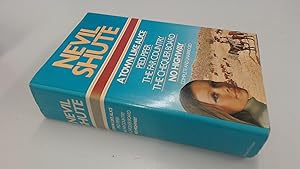
As I made my way through this page turner, I pulled out my big map of France to follow Howard’s progress, which made the story all the more exciting. There is always enough non-fiction in a Shute novel that most of them have me racing to the Internet or some reference material to investigate further some aspect of the story. With the war not yet won, personal heroism (and more than a tinge of Commonwealthism/nationalism) have to take the place of a larger WWII victory narrative. The fact that book was published in 1942, long before the end of the war, gives one a different perspective on the tale as well. I won’t say whether or not his young charges were as lucky–but have you ever seen a movie with a child character whose stupidity ends up getting folks in trouble? ‘Nuff said about that. Since the story unfurls as a flashback, I won’t be giving anything away by mentioning that Howard makes it back to safety.

During the journey home Howard comes across five more children that need his help escaping France. Reluctantly agreeing to take two small English children back to England with him, Howard ends up finding it increasingly difficult to make his way home with the Nazis rolling into France with much more speed than anyone anticipated.

Pied Piper is the story of John Howard, a retired Englishman who is on holiday in France at the outbreak of World War II. But interesting and suspenseful enough to enthrall even someone like me who likes a lot of “old lady” books. Although there is usually a romance of some kind that is part of the mix, I would be remiss if I didn’t mention that his books are shot full of testosterone-laden adventures. And his novels tend to be the kind where if every line doesn’t move the plot forward, your foreshadowing alarm should go off. It sometimes sounds like it comes straight from one of those fast talking, black and white films from the 1940s. There is also a certain corniness to some of Shute’s dialog. Some of Shute’s novels use some appallingly dated racist language, but I chalk that up to the era in which they were written, and I have my fingers crossed that the man himself wasn’t actually racist. I attach some qualifications to this recommendation, but nothing that even comes close to diminishing my enthusiasm for his work. No special anniversary that I know of, it’s just that you are missing out on a really great storyteller. For those of you who have never read a book by Nevil Shute, now is the time.


 0 kommentar(er)
0 kommentar(er)
